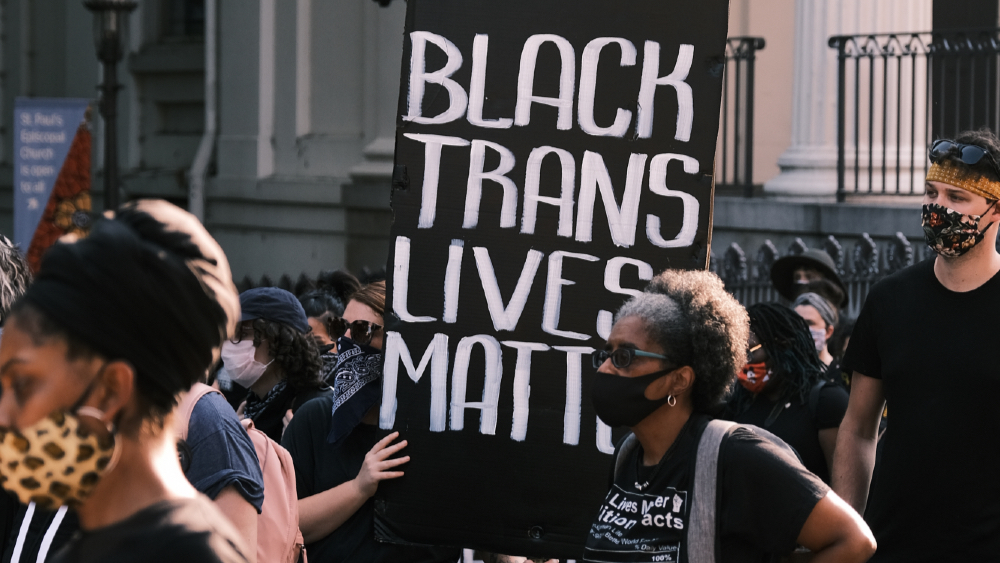If you’re interested in sharing your opinion on any cultural, political or personal topic, create an account here and check out our how-to post to learn more.
____
The violence experienced by Black trans people, particularly Black trans women and femmes, has been an issue for decades, but has yet to get the widespread attention it so desperately needs and deserves. There have been many killings of Black trans and gender non-binary/non-comforming people just this year, with the three latest murders of Tiffany Harris, Queasha Hardy and Brian Powers all failing to get national media attention. As the calls for justice for Black lives continue, we must make sure Black trans lives are front and center. We need all Black people and allies to the Black Lives Matter movement to fight for our trans siblings — while they’re still alive.
So far this year, at least 21 trans people have been murdered, most of them Black. Every week since the beginning of June, at least two Black trans women have been murdered. Tiffany Harris, a trans woman, was stabbed to death in New York City on July 26 by a man who is suspected to have had a relationship with her. Another trans woman, Queasha Hardy, was shot in Baton Rouge, Louisiana, with no suspect yet to be identified. Brian Powers, a transmasculine person, was found shot to death in Akron, Ohio, on June 13, and there are still no leads on a suspect in the case. Most of the trans women murdered are young — Harris was 32 and Hardy was only 24. The disproportionate violence faced by Black trans women contributes greatly to the fact that their average life expectancy is only around 35 years of age. This should horrify all of us.
The dangers faced by the trans and nonbinary community are often ignored by mainstream media and politicians alike. Even with the recent focus on the Black Lives Matter movement, the murder and violence against Black trans people is being overlooked, and goes along with the fact that Black women who are murdered are not getting the same attention or respect as men. The story of Breonna Taylor, a Black woman who was shot in her home by police officers who still have not been arrested, is just one example of how the system continues to brutalize and fail Black women across the board.
At the end of the day, misogynoir and transphobia are deeply interlinked, and must be dismantled if we’re to protect our most vulnerable neighbors.
This issue is not faced by the Black community alone, but by society as a whole. Transgender and gender non-conforming people of all races still face prejudices and daily attacks on their being — from being legally denied health care and jobs, to legislation actively being pushed to undermine their humanity daily.
For example, the Trump administration recently stated that transgender people do not fall under the clause that prevents discrimination in health care under the Affordable Care Act, leaving trans people even more vulnerable. In the midst of a global pandemic, where we all need and deserve access to reliable, affordable healthcare, this move is especially cruel.
Not only is justice for Black trans lives important for the trans people who are often at the forefront of the struggles for justice and equality — rights that often result in benefits to other communities — it’s important for anyone who purports to care for Black lives. People who are not Black, as well as Black cisgender folks, should be as committed to ensuring justice for Black trans women as they are for our cisgender siblings. It’s up to each of us to push back against transphobia when it presents its ugly head in spaces with the people and communities we hold dearly.
While laws in this country have added some protections for the LGBTQ/SGL community, there are systems our society has in place and things we are taught in schools and through the media that are designed to suggest that difference is to be tolerated — rather than celebrated — at best. This makes it difficult to hold space for people who do not affirm the parts of ourselves we find the most beauty in.
There are some concrete steps we can all take, starting today. Having conversations with people in our personal lives who are misinformed about trans folks, and the many positive contributions that Black trans and Black non-binary people continue to make, is vital. Resources like the National Black Justice Coalition’s Gender Toolkit provide language and facilitate conversations about gender justice for all Black women. Participating in the Census before October 31, 2020 and voting in the upcoming elections are essential as well — too many political and elected officials are using politics to profit from the pain of the most marginalized members of our community, and we need to keep them out of office.
We have the opportunity to ensure our elected officials do not have the opportunity to legally oppress any of us, and that our communities are rallying to protect our most marginalized. We’re calling on everyone to join us in the critically important work to uplift and protect the beauty, strength and humanity of Black trans people across the United States and beyond.
____
David Johns is the Executive Director of the National Black Justice Coalition.
